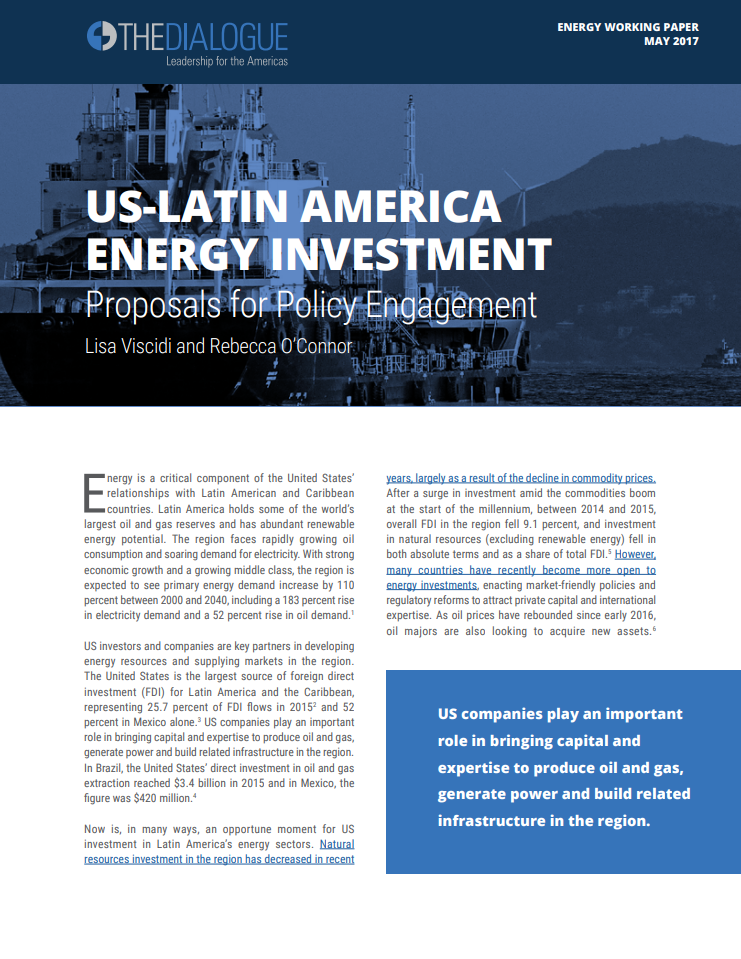The Politics Of Disaster Relief
After a 7.0 magnitude earthquake struck Haiti, the aftershock reached China in ways that few anticipated.The earthquake forced Chinese leaders to navigate the tricky politics of disaster relief.
PROPOSALS FOR POLICY ENGAGEMENT
While the Trump administration’s "America first" policies are aimed primarily at giving higher priority to national security and economic growth for the United States, the White House’s approach will have impacts on energy relations with the rest of the hemisphere that should also be considered, according to a new report by the Inter-American Dialogue.
The report, US-Latin America Energy Investment: Proposals for Policy Engagement, examines US investment in the energy sector in Latin America and the Caribbean, the role it plays in enabling energy trade and broader bilateral cooperation and how the administration’s policy agenda – which includes changes to trade terms, energy regulations and funding for energy-related programs – is likely to affect investment. The authors, Lisa Viscidi, director of the Dialogue’s Energy, Climate Change and Extractive Industries Program, and program associate Rebecca O’Connor, identify key considerations for the US-Latin America energy relationship and provide recommendations that call for continued cooperation on energy as part of a larger regional agenda as well as support for market access and regulatory reforms.
To contact co-author Lisa Viscidi, write to energy@thedialogue.org.
The Dialogue’s Energy, Climate Change and Extractive Industries program informs and shapes policies that promote investment while encouraging economically, socially and environmentally responsible development of natural resources.
For more information, please visit: https://www.thedialogue.org/energy
After a 7.0 magnitude earthquake struck Haiti, the aftershock reached China in ways that few anticipated.The earthquake forced Chinese leaders to navigate the tricky politics of disaster relief.
What should we expect from a newly powerful Brazil? Does the country have the capacity and leadership to be a central actor in addressing critical global and regional problems?
President Lula da Silva triumphantly announced that he and his Turkish counterpart had persuaded Iran to shift a major part of its uranium enrichment program overseas—an objective that had previously eluded the US and other world powers. Washington, however, was not applauding.
